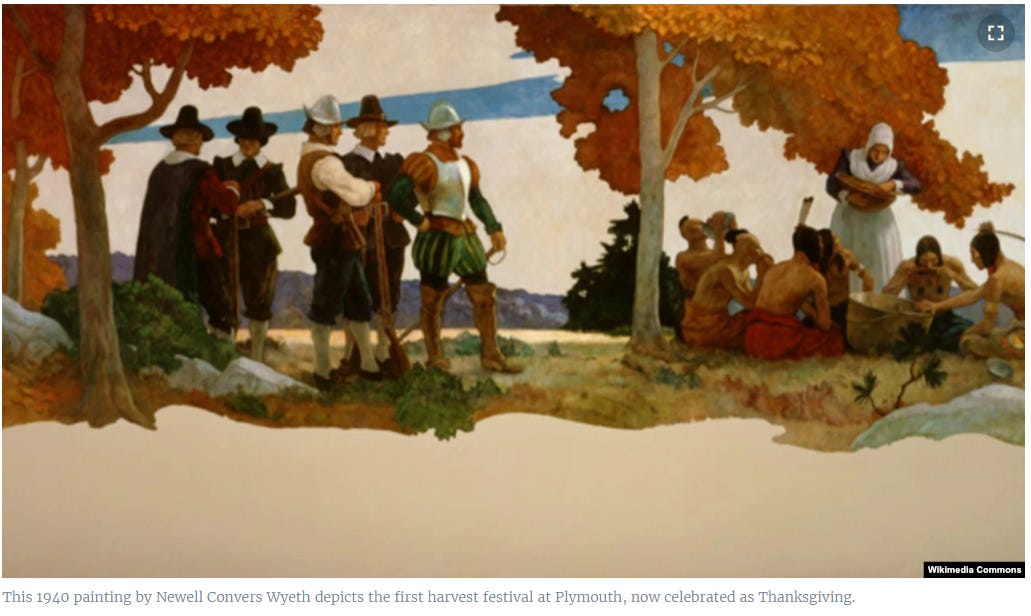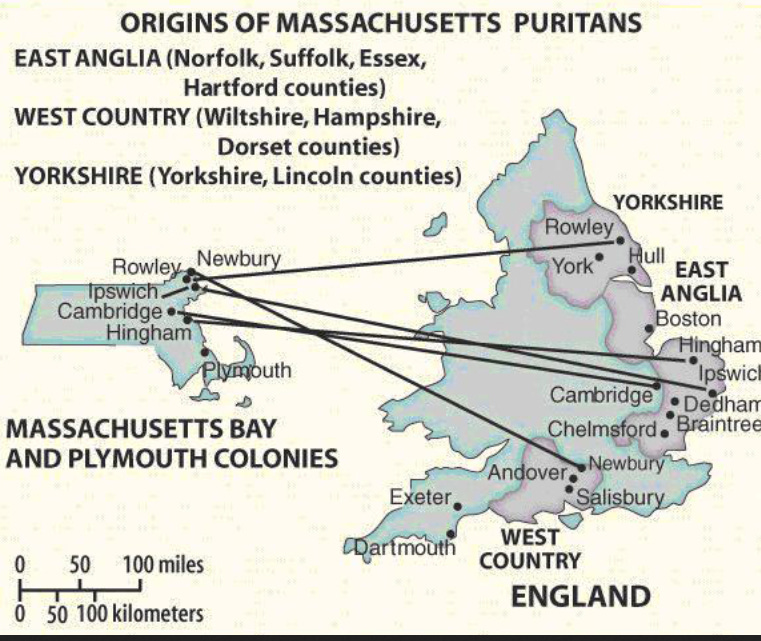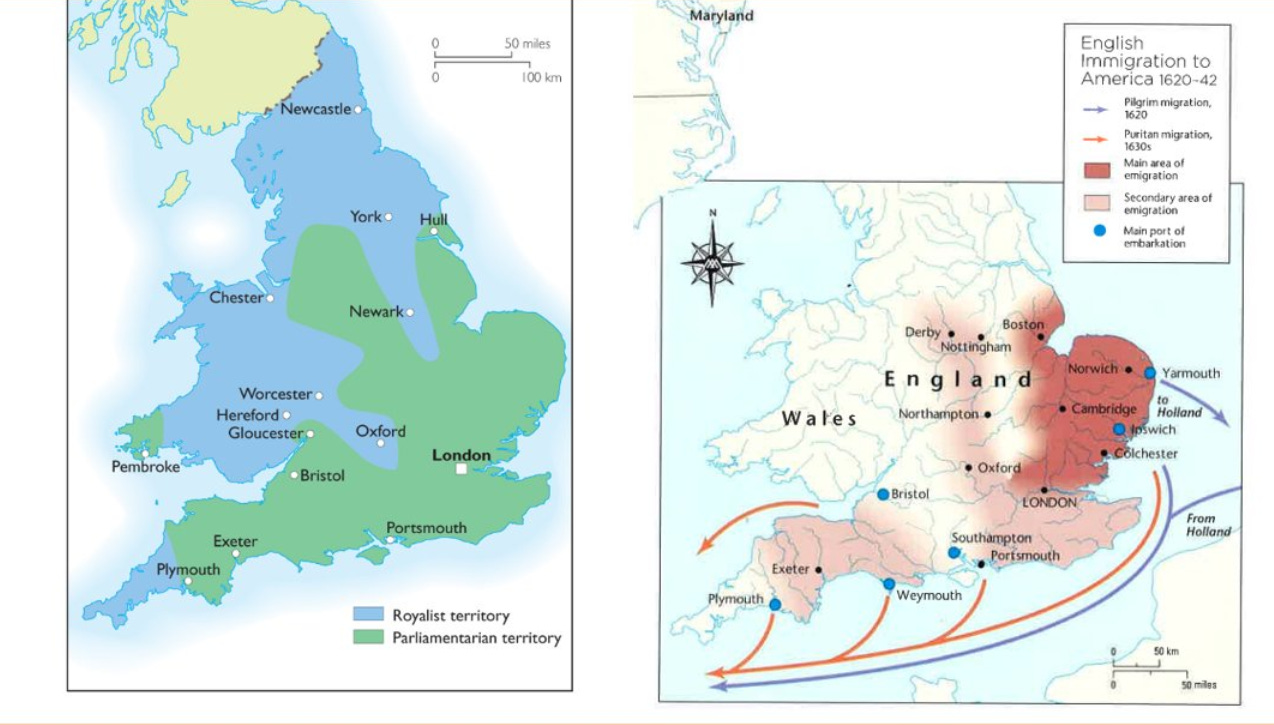Happy Thanksgiving To Our American Friends!
Feel free to use this as Open Thread #16
I’d like to wish our American friends a very Happy Thanksgiving!
I found a short and informative blog entry about the Puritans and where they came from before they landed at Plymouth Rock.
Who Were The Puritan Migrants?
Massachusetts Bay Colonists tended to be middle-class and usually migrated in family units, according to an article on the New England Historical Society website:
“Most of the Puritans who came to New England were prosperous middle-class families. They were different from the poor, single male immigrants who predominated immigration to other regions of America. They were highly literate and skilled, unlike the immigrants to Virginia, 75 percent of whom were servants.”
Although Puritan migrants came from almost every county in England, the greatest groups of these migrants came from Eastern and Southern England, particularly the East Anglian counties of Norfolk, Suffolk, and Essex; London, Hertfordshire and Kent; and the southwestern counties of Wiltshire, Somerset, Dorset, and Devon.
According to the book, British Atlantic, American Frontier, two specific groups of migrants came from these areas:
“From this considerable area, two major migrant streams can be identified: first, a migration of families, drawn mainly from East Anglia, the Home Counties, and the West Country, who had Puritan sympathies; second, a migration of single, young men, drawn from London and Devon, who were attracted by prospects of employment in agriculture, trades, and the fishery. The migration from East Anglia – approximately 38 percent of total migrants in one study – comprised mainly of families, focused on the Boston area. During the early seventeenth century, East Anglia was a center of religious nonconformism. Many of the migrants from the area were Puritans, who feared religious oppression in England, and wished to join Puritan leader John Winthrop in building a ‘holy city upon the hill’ in the New World. Similar Puritan congregations existed in the Home Counties and the West Country. As the migration got underway, migrants frequently recruited other family members as well as friends to join them, creating a chain of migration across the Atlantic. Particular towns and villages in England became linked to specific townships in New England. Hingham, Massachusetts, drew 40 percent of its families from East Anglia, most of them from the Hingham area in Norfolk. Other family migrations most likely linked eastern Kent to the South Shore of Boston (Scituate, Plymouth, Sandwich), the Wiltshire/Berkshire area to the Merrimack Valley (Salisbury, Newbury, Amesbury), and southwest Dorset to the South Shore (Dorchester) and the Connecticut Valley (Windsor.) The migrations from London and Devon were much different. Although both sent families to New England, the migrations appear to have been weighted toward single, young men, comprising perhaps a third of total male migrants.”
Migrants who went to the Chesapeake and the West Indies tended to be indentured servants from London. A small fraction of indentured servants were also sent to New England too though, probably contracted to merchants and tradesman who themselves had emigrated from London and Boston, England.
In fact, many of the migrants sent to the fishing settlements in Massachusetts, New Hampshire and Maine were indentured servants contracted by merchants in Barnstable, Plymouth, and Dartmouth.
Here’s a handy map:
Zooming out:
Other Items
I am very, very behind on publishing another interview, but will turn to that over the course of the next week. This week is a bit of a breather for me in regards to writing, so bear with me as I collect my thoughts. I appreciate your patience. The last thing that I want to do is post something that is low-effort and/or repetitive.
See you guys on Saturday.







Taking a bit of a breather this week to collect my thoughts as I am all over the place travel-wise. I will see you guys on Saturday.
"The last thing that I want to do is post something that is low-effort and/or repetitive."
Thanks for this. Been unsubscribing to a bunch of stuff lately because of this and an overcrowded inbox. Managing to stay informed/making sense of events on your own without this sense of overwhelmingness is a real struggle. I am genuinely curious about how other people balance this?